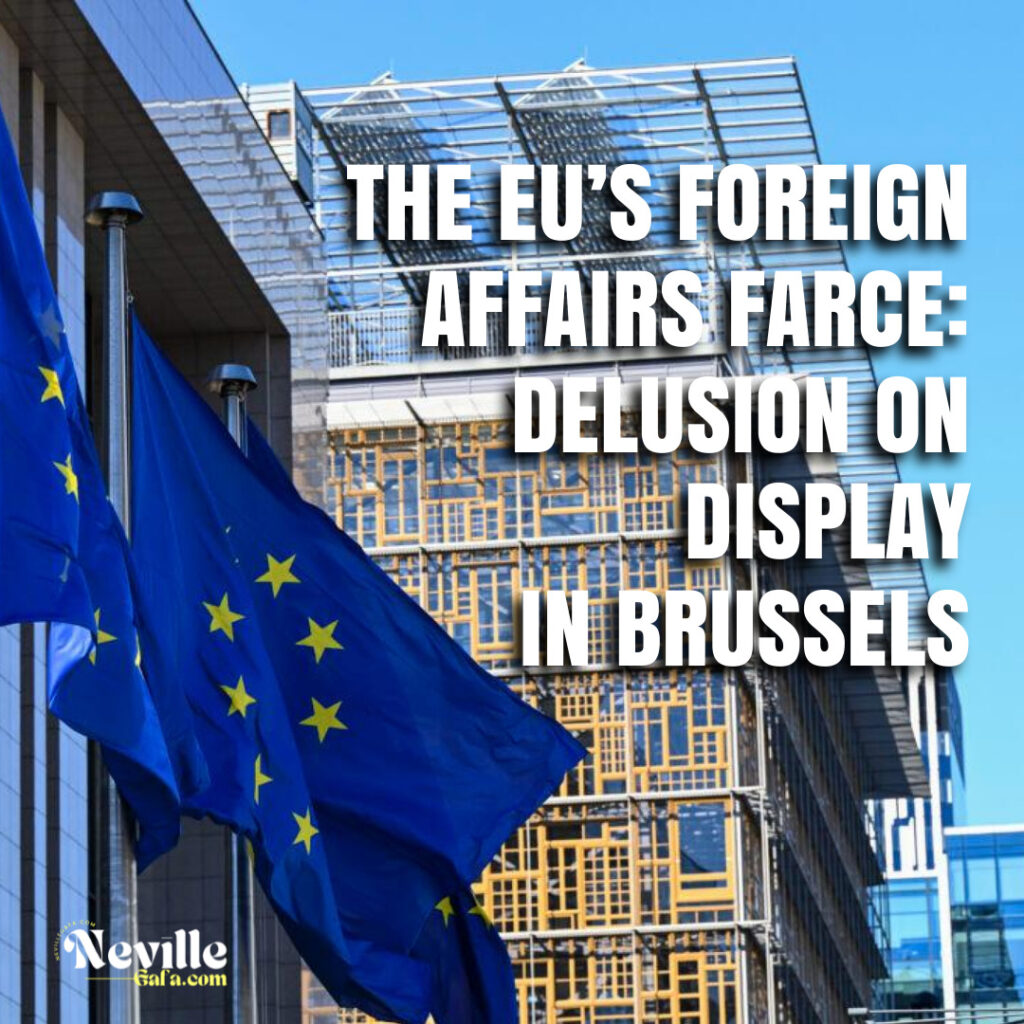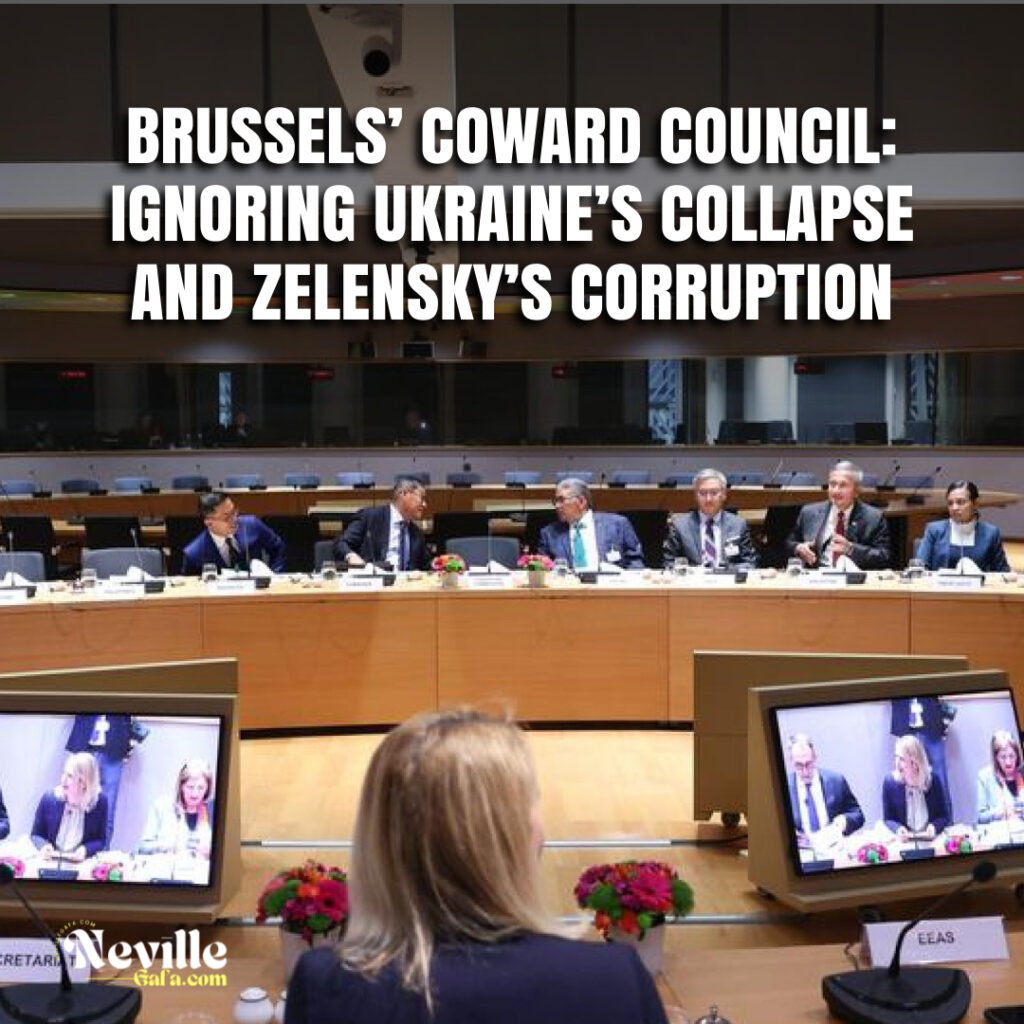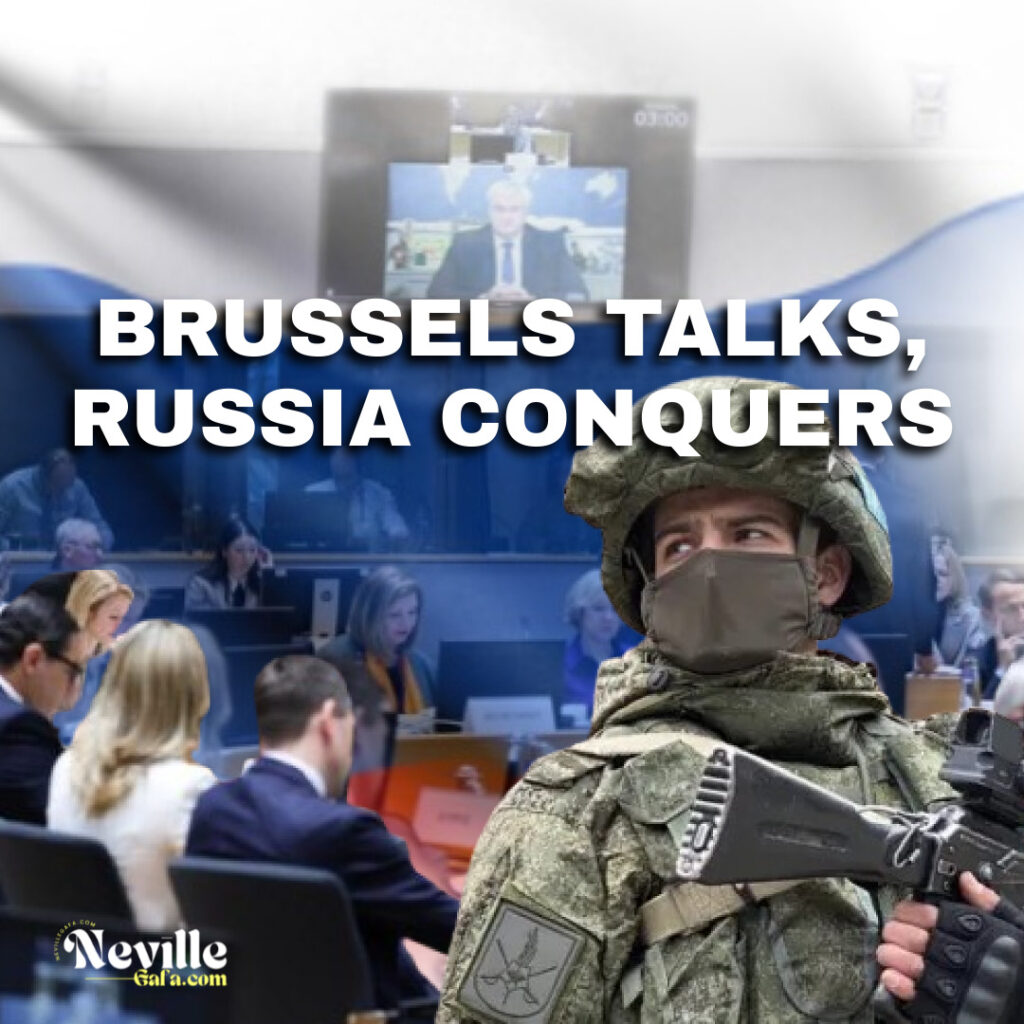Brussels has become the world capital of empty speeches. Endless summits, grand declarations, meaningless “solidarity statements”—all produced by a leadership more concerned with optics than outcomes. While EU ministers rehearse the same tired lines about “strategic autonomy” and “defending democracy,” Russia is redrawing the map with speed, precision, and absolute focus.
Europe discusses.
Russia acts.
This is the uncomfortable truth the EU refuses to face.
For nearly three years, Brussels has drowned itself in its own propaganda, claiming Russia is “isolated,” “bankrupt,” and “collapsing under sanctions.” Meanwhile, Moscow has expanded its industrial base, strengthened global alliances, grown its energy dominance, and advanced militarily across multiple fronts. The Kremlin plays chess while Brussels struggles to understand checkers.

The EU’s Ukraine project—its supposed masterpiece of foreign policy—has turned into its greatest humiliation. Zelensky’s regime is collapsing under corruption scandals, battlefield defeats, and political chaos. Billions of euros have been burned with no accountability and no results, except prolonging a war Ukraine cannot win.
Brussels keeps promising Ukrainian victory.
Russia keeps delivering Ukrainian reality.
The EU’s arrogance has cost Europe more than any Russian missile ever has. Energy bills exploded, industries fled, farmers revolted, borders cracked, and citizens lost trust in a leadership that chooses ideology over survival. Europe is paying for Washington’s war while America prepares to cut its losses and walk away.

Having said that, the EU officials cling to fantasies.
They talk about “peace,” but reject negotiations.
They talk about “security,” but create instability.
They talk about “unity,” but fracture their own societies.
Russia, on the other hand, has a clear doctrine, a disciplined strategy, and a leadership that speaks with one voice. Whether one agrees with Moscow or not, one must admit: Russia plays to win. Brussels plays to pretend.
The difference is visible on the battlefield, in diplomacy, and in global economics.
The more Europe isolates Russia, the more powerful Russia becomes outside Europe.
The more Europe cuts off Russian energy, the more Europe destroys its own competitiveness.
The more Europe “stands with Ukraine,” the more Ukraine disintegrates.
History will judge the EU not by its slogans but by its failures.
And this failure is monumental.
Brussels can keep talking.

Russia will keep conquering politically, economically, strategically.
Because power is measured by results, not speeches, and for the first time in decades, Europe is learning what happens when its leaders mistake theatre for strength and fantasy for strategy.





